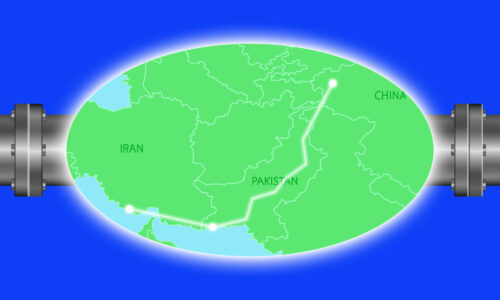Washington and Beijing inch forward on climate talks, even as Biden pitches green investments to ‘out-compete’ China
The U.S. and China continue to express mutual distrust or even disdain on many issues today, but tackling climate change could be an area of healthy competition, or even policy coordination.

Shortly after Joe Biden took office as U.S. president, his newly appointed international climate envoy, John Kerry, suggested that fighting climate change should be a “standalone issue” in U.S.-China relations. Beijing, still fuming after the multiple rounds of unfriendly moves in the final days of the Trump administration, threw cold water on the idea. “China-U.S. cooperation in specific areas…is closely linked with bilateral relations as a whole,” China’s Foreign Ministry said.
Bilateral relations as a whole haven’t changed very much in the two and a half months since, but the two sides are at least talking a lot more now — and steps toward more robust coordination on climate policy could be in the works.
- The high-profile bilateral talks in Alaska on March 18–19 were explosively bitter in public, but at least somewhat more productive in private. The U.S. side described them as “substantive” and mentioned areas of overlapping interests, including climate change, and the Chinese side later described the talks as “candid, constructive and beneficial.”
- A day after the meeting ended, China said that the two countries would set up a joint working group on climate change.
- The week after, John Kerry was in the same (virtual) room as his Chinese negotiating counterpart, Xiè Zhènhuá 解振华, during an international climate conference, marking the first formal contact of the two lead negotiators this year.
- On March 26, Biden invited Chinese leader Xí Jìnpíng 习近平 to a global leaders’ climate summit scheduled for April 22–23.
- Beijing has not yet responded to that invitation, but analysts say that China will “almost definitely” accept it, according to the SCMP.
Coordinating on policy, competing on green infrastructure, countering the Belt and Road?
But what might the U.S.-China climate dynamic look like, in practice? Beyond coordinating on policy and setting and refining goals — like China’s pledge to be carbon neutral by 2060 — through the Paris Agreement, the U.S. appears to be framing climate policy primarily through the lens of infrastructure.
Investing in infrastructure, in turn, is being sold by the Biden administration as a necessary way to meet the challenge of China.
- “China is investing three times more” in infrastructure than the U.S., Biden pointed out in his first press conference two weeks ago.
- A $2 trillion proposed “jobs plan” from the White House will “position the United States to out-compete China,” an official fact sheet advertises.
- “Like great projects of the past, the President’s plan will unify and mobilize the country to meet the great challenges of our time: the climate crisis and the ambitions of an autocratic China,” the fact sheet adds.
- Despite the sales pitch for a domestic audience, John Kerry insisted to CNBC that the green investments proposed by the White House are “not a counter to China,” but rather part of the work that every major country must do to tackle climate change.
But on an even larger scale, Japan and the U.S. are set to “draw up guidelines on supporting the development of high-quality infrastructure, including 5G wireless and hydrogen power, in the Indo-Pacific and elsewhere as a counterweight to China‘s Belt and Road initiative,” Nikkei Asia reports.
See also:
- U.S. is apparently determined to see if it can build a “Belt & Road Alternative.” Biden to discuss with Suga next week in D.C. / China-Africa Project (paywall)
- China looms large in Biden infrastructure plan / WSJ (paywall)
- How the U.S. should respond to China’s Belt and Road / Council on Foreign Relations
- The climate crusaders / The Wire China (paywall)
“John Kerry and Xiè Zhènhuá 解振华 are seen as uniquely capable of getting the U.S. and China to cooperate on climate change.”






